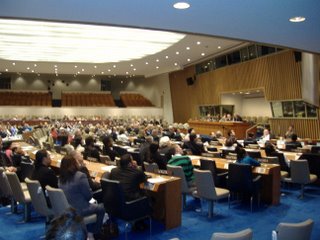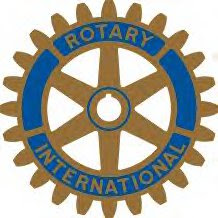 The Rotary Club of New York was a Cornerstone Business Co-sponsor of the two day Conference at the United Nations on March 8th and 9th titled:
The Rotary Club of New York was a Cornerstone Business Co-sponsor of the two day Conference at the United Nations on March 8th and 9th titled:“Enhancing Women’s Global Leadership Through Information Technology: Strengthening the Business Environment for Women; & Increasing the Participation of Women in Political Decision Making.
The overall goal was to explore the use of Information and Communications Technologies (ICT) in creating an environment for the advancement of women.
The main points covered included:
-Trends in Women’s Employment
-Remedies for Gender Imbalance at the Top
-Overcoming Challenges of Gender Inequality
-Best Practice Examples from IT Leaders
In 1947, the Economic and Social Council established the Commission on the Status of Women to promote the political, economic, civil, social, and educational advancement of women. http://www.un.org/womenwatch/daw/csw/index.html
The Millennium Declaration adopted in 2000 highlighted the importance of Information and Communication technologies be made available to all. The first phase was held in Geneva at the World Summit on the Information Society (WSIS) in December 2003 to have all member states endorse this principle and develop a plan of action. The second phase will focus on the monitoring of progress of feasible actions, presenting "good practices" and "lessons learned". At the Geneva conference Secretary-General, Kofi Annan, stated “There is a gender [digital] divide with women and girls enjoying less access to information technology than men and boys. This can be true of rich and poor countries alike”.
The conference was organized by AIT Global, the Global Association of Management and IT Executives, http://www.aitglobal.com/ and sponsored by IBM, AMD, InfoWorld Media Group IDG Publishing, AFCEA, and others.
YIR, tm









